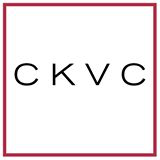The most common exemptions to state and federal overtime laws are known as the “white collar exemptions,” and include the executive, administrative, learned professional, and creative professional exemptions. In order to qualify for one of these exemptions, an employee must pass the “salary test” and the “duties test.” Click here for more information on the “salary test.” The “duties test” is explained below.
To qualify for the executive employee exemption, the employee must (1) have a primary duty of managing the enterprise, or managing a customarily recognized department or subdivision of the enterprise; and (2) customarily and regularly direct the work of at least two or more other full-time employees or their equivalent; and (3) must have the authority to hire or fire other employees, or the employee’s suggestions and recommendations as to the hiring, firing, advancement, promotion or any other change of status of other employees must be given particular weight. Executive employees tend to be the organization’s leadership team, including managers, supervisors, directors, and executive officers.
To qualify for the administrative employee exemption, the employee must (1) primarily perform office or non-manual work directly related to the management or general business operations of the employer or the employer’s customers; and (2) primarily perform duties that include the exercise of discretion and independent judgment with respect to matters of significance. Employees who satisfy this exemption tend to work in areas such as tax, finance, accounting, budgeting, auditing, insurance, quality control, purchasing, procurement, advertising, marketing, research, safety and health, personnel management, human resources, labor relations, public relations, government relations, computer networks, internet and database administration, or legal and regulatory compliance.
To qualify for the learned professional employee exemption, the employee must (1) primarily perform work requiring advanced knowledge, defined as work which is predominantly intellectual in character and which includes work requiring the consistent exercise of discretion and judgment; and (2) the advanced knowledge must be in a field of science or learning; and (3) the advanced knowledge must be customarily acquired by a prolonged course of specialized intellectual instruction. Employees who satisfy this exemption tend to work in law, medicine, theology, accounting, actuarial computation, engineering, teaching, or pharmacy. Learned professionals include registered medical technologists, registered nurses, dental hygienists, physician assistants, certified public accountants, executive chefs, athletic trainers, funeral directors, teachers, lawyers, scientists, and doctors.
To qualify for the creative professional employee exemption, the employee must (1) primarily perform work requiring invention, imagination, originality or talent in a recognized field of artistic or creative endeavor. Examples of employees who satisfy this exemption tend to work as actors, musicians, composers, conductors, soloists, certain painters, writers, cartoonists, essayists, or novelists.
Employees who satisfy one of these “duties tests” and who pass the “salary test” are not entitled to overtime. Please contact us if you would like more information on how to determine if someone is or is not entitled to overtime.

